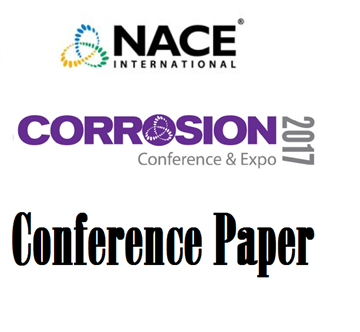Search
51314-3945-Corrosion Testing of Stimulation Acidizing Packages on High Strength Corrosion Resistant Tubing Alloys for High Pressure Deep Water Wells
Also Purchased
51312-01573-Research on Corrosion Inhibitors for Acid Stimulation
Product Number:
51312-01573-SG
ISBN:
01573 2012 CP
Publication Date:
2012
$20.00
Materials and Corrosion Risk Mitigation Associated with Flowback of Acid Stimulation Fluids
Product Number:
51317--8917-SG
ISBN:
8917 2017 CP
Publication Date:
2017
$20.00
01007 PERFORMANCE OF CORROSION INHIBITORS FOR ACIDIZING JOBS IN HORIZONTAL WELLS COMPLETED WITH CRA LABORATORY TESTS
Product Number:
51300-01007-SG
ISBN:
01007 2001 CP
$20.00




